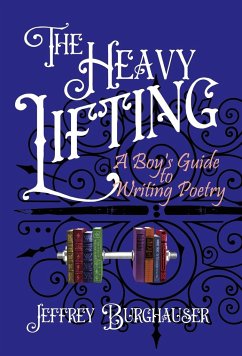
Robert Frost
Gebundenes Buch
A Boy's Will
Versandkostenfrei!
Versandfertig in über 4 Wochen

PAYBACK Punkte
6 °P sammeln!




Robert Frost is a poet of memories and ghosts, silences and sorrows. His music is made by the rhythms of nature: the flutter of bats at dusk, the cry of the lone whippoorwill; his images lie in the earth for the moss and grapevines to cover. A Boy's Will is Frost's first collection of poems.
Robert Frost (1874-1963) was an American poet. Born in San Francisco, Frost moved with his family to Lawrence, Massachusetts following the death of his father, a teacher and editor. There, he attended Lawrence High School and went on to study for a brief time at Dartmouth College before returning home to work as a teacher, factory worker, and newspaper delivery person. Certain of his calling as a poet, Frost sold his first poem in 1894, embarking on a career that would earn him acclaim and honor unlike any American poet before or since. Before his paternal grandfather's death, he purchased a farm in Derry, New Hampshire for Robert and his wife Elinor. For the next decade, Frost worked on the farm while writing poetry in the mornings before returning to teaching once more. In 1912, having moved to England, Frost published A Boy's Will, his first book of poems. Through the next several years, he wrote and published poetry while befriending such writers as Edward Thomas and Ezra Pound. In 1915, after publishing North of Boston (1914) in London, Frost returned to the United States to settle on another farm in Franconia, New Hampshire, where he continued writing and teaching and began lecturing. Over the next several decades, Frost published numerous collections of poems, including New Hampshire: A Poem with Notes and Grace Notes (1924) and Collected Poems (1931), winning a total of four Pulitzer Prizes and establishing his reputation as the foremost American poet of his generation.
Produktdetails
- Verlag: Mint Editions
- Seitenzahl: 54
- Erscheinungstermin: 1. Februar 2021
- Englisch
- ISBN-13: 9798888974209
- Artikelnr.: 68577892
Herstellerkennzeichnung
Libri GmbH
Europaallee 1
36244 Bad Hersfeld
gpsr@libri.de
Für dieses Produkt wurde noch keine Bewertung abgegeben. Wir würden uns sehr freuen, wenn du die erste Bewertung schreibst!
Eine Bewertung schreiben
Eine Bewertung schreiben
Andere Kunden interessierten sich für











